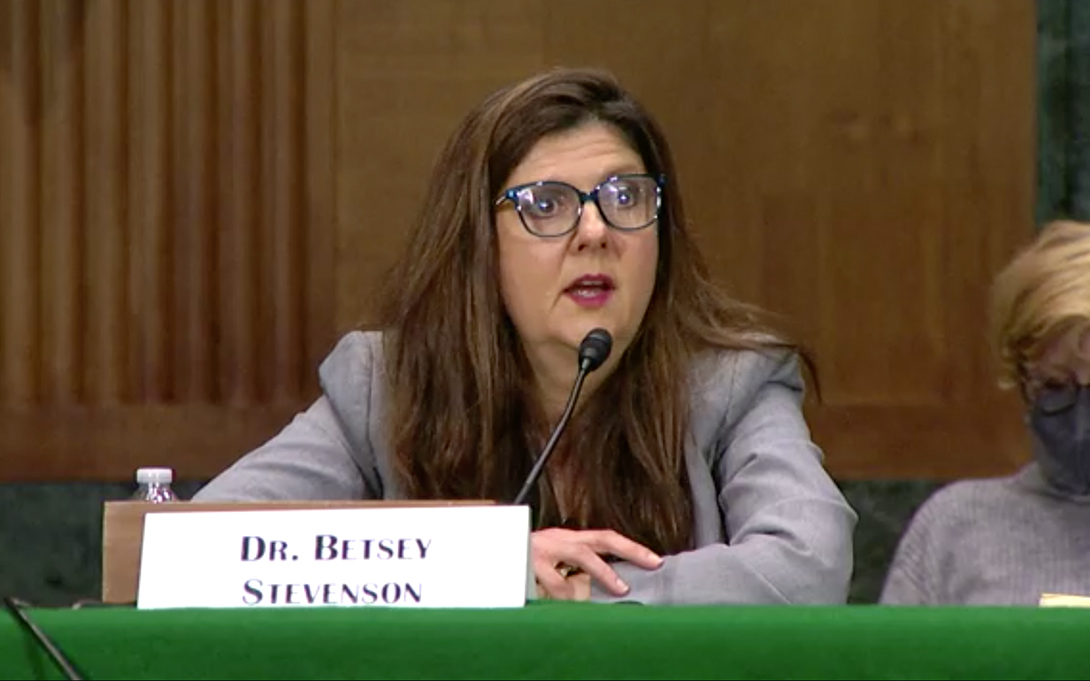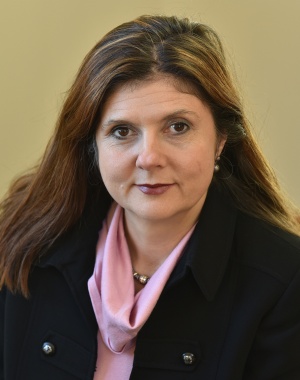
In testimony before the Senate Banking, Housing, and Urban Affairs Committee, Ford School economics and public policy professor Betsey Stevenson examined, "the link between the labor market, families, caregiving, and the risk of higher future inflation for the United States."
Opening the hearing, entitled Building a Resilient Economy: Shoring Up Supply, committee chair Sen. Sherrod Borwn (D-OH), noted, "We need to invest in our workers and ensure that they reap the benefits of the economic growth they create – through good paying jobs and investment in training programs and affordable childcare. Taken together, these investments ensure that economic growth reaches the whole country."
Stevenson testified that the labor supply for the service sector is one of the drivers of inflation. "The risk to rising inflation in the service sector is that labor supply remains depressed relative to pre-pandemic trends. Overall the economy remains short 1.4 million workers and 3.5 million jobs relative to pre-pandemic projections."
To alleviate that shortage, she called on the senators to take two critical steps: "The first is to ensure access to childcare and home nursing care because these services free up family caregivers to remain employed or return to the labor force. Of course, these policies help male caretakers remain employed as well. But because of the uneven distribution of informal and formal care labor, polices that expand access to care are more likely to encourage women into the workforce... The second step is to increase funding and improve access to training programs for mid-skilled positions and community college."
"When there are not enough skilled workers to fill positions, prices will rise because skills cannot be gained overnight. As employers compete for a dwindling supply of workers with the needed training, wages will be bid up to the point that the additional costs will need to be passed onto customers. The time to act is now," she concluded.
You can watch the hearing here.
You can read her testimony here.
